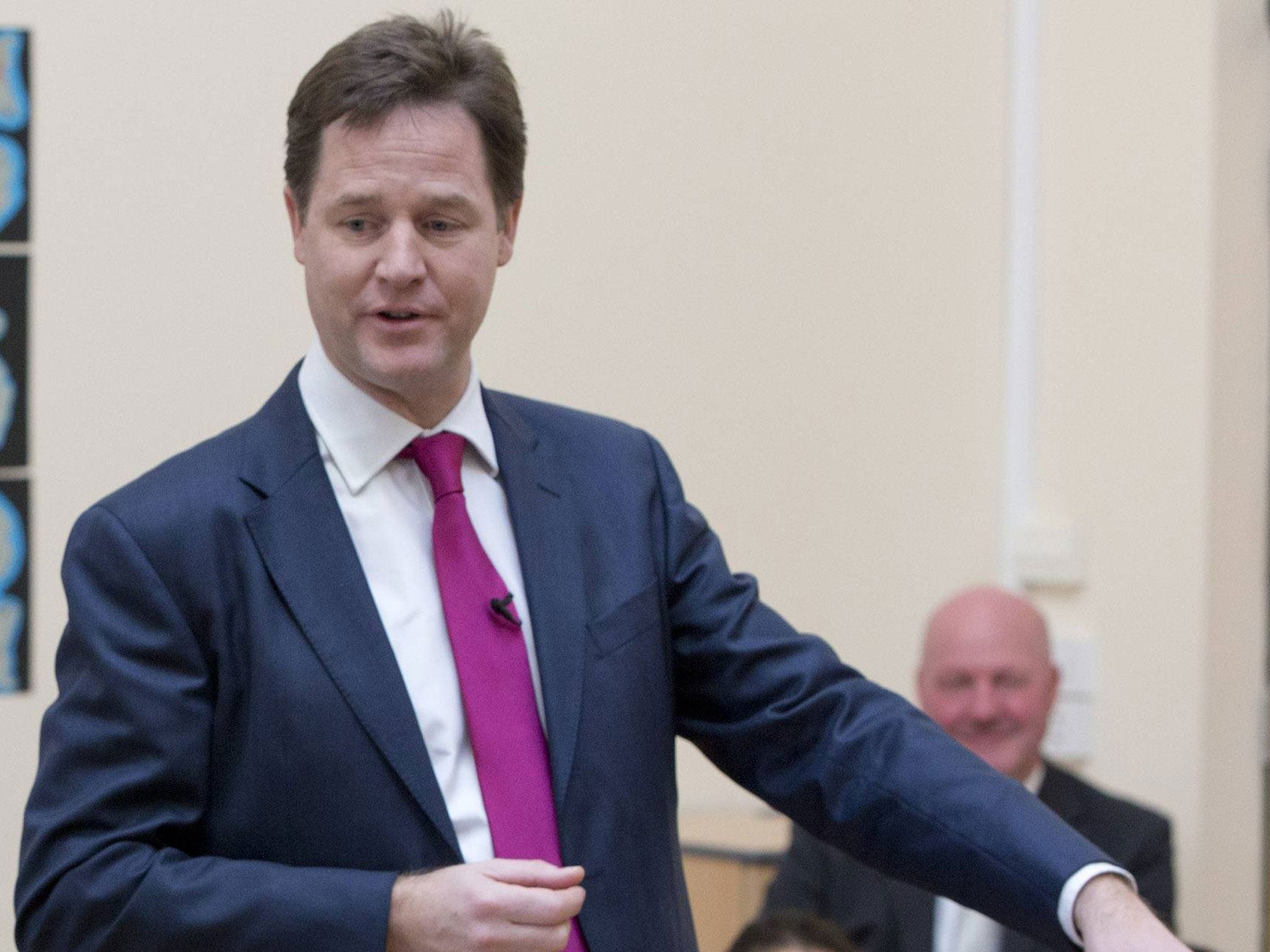Clegg has a mind-altering plan for power
Do-gooders who have not thought about drugs since school will nod


Just because Nick Clegg speaks in clichés does not mean he is an idiot. But when he says, as he did in an interview with The Sun on Friday, "We are losing the war on drugs on an industrial scale," we ought to be on our guard. "Industrial scale" is one of his favourite phrases. The Liberal Democrats have betrayed their promises on an industrial scale, and they are going to lose votes at the next election on an industrial scale. But Clegg has a plan for the next election that might just work.
On drugs, his plan is to talk liberal garbage. Cliché after cliché. "Losing the war on drugs." "A conspiracy of silence." "It's time we told the truth." Lots of right-on do-gooders who have not thought seriously about drugs since school will nod and think that liberalisation, decriminalisation or legalisation – whatever – is a good idea. Yet the truth is that no one has a better idea, except in minor details, than the present policy, which has been remarkably successful.
From 1998 to 2011, the proportion of young people aged 16 to 24 who had taken illegal drugs in the past month has halved from 20 per cent to 10 per cent, according to the Crime Survey for England and Wales. This Labour achievement, at a time when the consumption of legal drugs, alcohol and tobacco, has also fallen, is ignored by people who are under the influence of that ancient piece of rhetoric, "the war on drugs is not working".
Hence the woolliness of the alternatives to the "war on drugs". Clegg's excuse for raising the subject now is that a select committee of MPs has published a report saying... it doesn't know. It recommends a royal commission to review all options, including legalisation. So, after an inquiry lasting a year, the committee has concluded that there should be another inquiry.
Clegg, though, is clear: "It's time to do something different," he told The Sun. Such as? "Let's look at what works elsewhere. I'm going to make sure we look properly at the evidence in this parliament... We owe it to young people to find what does work and then do it."
So if he doesn't know what "works" and doesn't know that existing policy is working, what is he doing in the mass-market Sun talking tosh? It suggests that, even among Sun readers, there is a constituency for liberal tosh about drugs. The Sun's own opinion poll accompanying Clegg's interview found that 30 per cent want to decriminalise cannabis and a further 19 per cent to legalise it.
That is part of Clegg's plan: he has to look for what he might call niche demographics – on an industrial scale. That is also why the Liberal Democrats' defeat in this month's Autumn Statement was not as serious as it seemed. Clegg had been pressing for months for a mansion tax on houses worth more than £2m. George Osborne ruled it out at the Tory conference, but the Lib Dems still hoped to persuade the Chancellor to accept new higher bands of council tax. But Osborne, or, more probably, David Cameron, said no.
I understand that Clegg took the setback cheerfully, partly because other tax changes, including on pensions, ensured that the Autumn Statement took a large extra chunk from the richest 10 per cent. And partly because, as he told aides, "I'll have the mansion tax; I'm very happy to have it for our manifesto in 2015; it's very popular and I can't understand why the Tories don't want it".
Clegg thinks he can appeal to the "fairness" market, fighting the next election as the party that forced the Tories to be fairer. Expect the Lib Dems in particular to make much of figures showing that the rich will bear a greater share of the tax burden in this Parliament than they did under Labour (this is, as I have discussed before, likely to be true overall, though not in every year of this Parliament).
This might seem to risk pushing the Lib Dems too far into Labour's arms, but I have been struck by how cross Lib Dem MPs are that Ed Miliband allied himself opportunistically with with what one called "Tory backwoodsmen", over House of Lords reform and Europe. And I am told that Clegg has cheekily observed that he thinks Miliband's opposition to the squeeze on benefits brings him "close to tuition fees territory", of making promises that he cannot keep. After protecting spending on the NHS, schools and pensioners (policies for which Clegg claims credit, incidentally, as well as for having "tried to soften the blow on defence"), there is not much spending left to cut, and welfare is about a third of it. By opposing the real-terms cut in benefits, Miliband is running out of credible savings to make.
The Liberal Democrats are still in deep trouble. But they do have a plan and it is not stupid. Clegg is making a speech tomorrow in which he will set out another cliché: "Our offer is different from that of the Conservatives." The Lib Dems understand voter segmentation and how to use it to defend as many as possible of their 57 seats. If they end up with around 50 seats they still have a good chance of holding power in a hung parliament, provided that the gap between Labour and Conservatives is not too great. It just requires luck. On an industrial scale.

Join our commenting forum
Join thought-provoking conversations, follow other Independent readers and see their replies